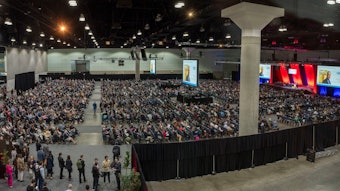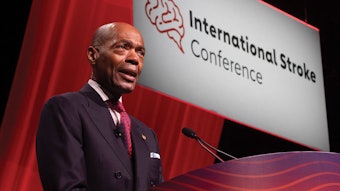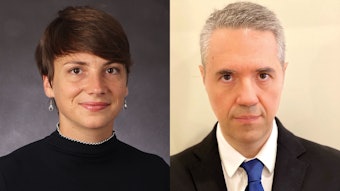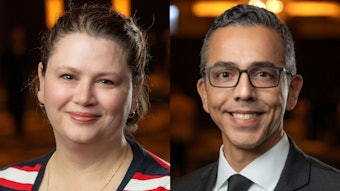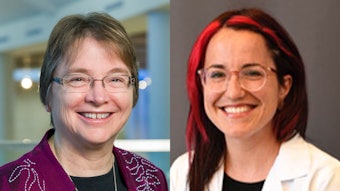Opportunities in neurointerventional training
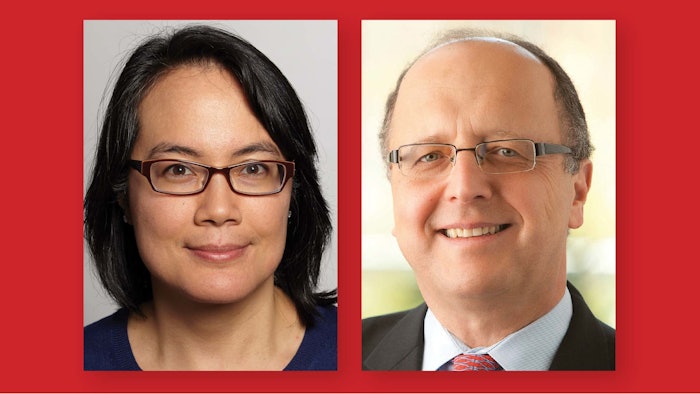
There has been a growing interest in neurointerventional training among both neurology residents and vascular neurology fellows, and a session at this year’s meeting is looking to further pique that interest with insight from a panel of experts in the field.
Co-presented by the Society for Vascular and Interventional Neurology (SVIN), Wednesday’s “Neurointerventional Training for Neurologists,” will offer attendees a closer look at the challenges and the future directions for this exciting specialty area.
Presenter Johanna Fifi, MD, associate professor of neurosurgery and neurology at the Icahn School of Medicine at Mount Sinai in New York, said she hopes the session will inspire residents to gain an interest in neurointervention as well as give them some practical advice on the steps and training options that are available.
“This is an exciting field for neurologists who love acute care and procedural practice,” she said. “It’s full of innovation and cutting-edge technology with a vast potential for helping patients.”
In her presentation, “Pathways to Neurointerventional Fellowship for Neurology Residents,” Dr. Fifi will offer an overview of pre-fellowship requirements which include neurology residency and either a vascular neurology or neurocritical care fellowship. That includes the various options for those fellowships such as the Committee on Advanced Subspecialty Training (CAST), Accreditation Council for Graduate Medical Education (ACGME) and United Council for Neurologic Subspecialties (UCNS) as well as a look at unaccredited fellowships. Attendees will also get a feel for the different disciplines involved in this area.
“Neurointervention is a multidisciplinary field and benefits from the knowledge of all neuro specialties, including neurology, neurosurgery and radiology” Dr. Fifi said.
Pierre Fayad, MD, FAHA, FAAN, professor of neurological sciences and chief of the Vascular Neurology and Stroke Division at the University of Nebraska Medical Center in Omaha, Nebraska, will serve as one of the session’s moderators. According to Dr. Fayad, the session will answer questions raised by those with interest in this growing field of expertise.
“Neurointerventional training is young and getting increasing attention. The need for neurointerventionalists has risen dramatically in light of the effectiveness of various applications in acute stroke treatment and prevention,” he said, “in particular, the application of mechanical thrombectomy for acute stroke treatment and carotid stenting for stroke prevention in patients with carotid stenosis. There is a strong need for skilled, well-trained neurointerventionalists who can perform these procedures well, improve clinical application and carry on research to widen the scope of these interventions.”
In addition to Dr. Fifi, other presentations will include:
Jenny Tsai, MD, interventional and vascular neurologist with Spectrum Medical Health Group, Grand Rapids, MI. Dr. Tsai will talk about “Moving Toward a Match System for Neurointerventional Training.”
Sunil Sheth, MD, associate professor and director of the Vascular Neurology Program at the University of Texas McGovern School of Medicine in Houston, who will discuss “The Need for, and Barriers to, Successful Interventional Neurologists in Academics.”
Dr. Fayad said he hopes the focus on those particular areas will draw more people into this exciting specialty.
“There is a need to involve neurology residents early in their residency training to open their eyes on the promise and excitement of this specialty so that more of them get familiar with what it offers and see it as a possible career to seek out,” he said. “The hope is that residents interested in stroke become familiar with the specialty, its promise, and the excitement of widening future applications that can further improve patient outcomes.”
